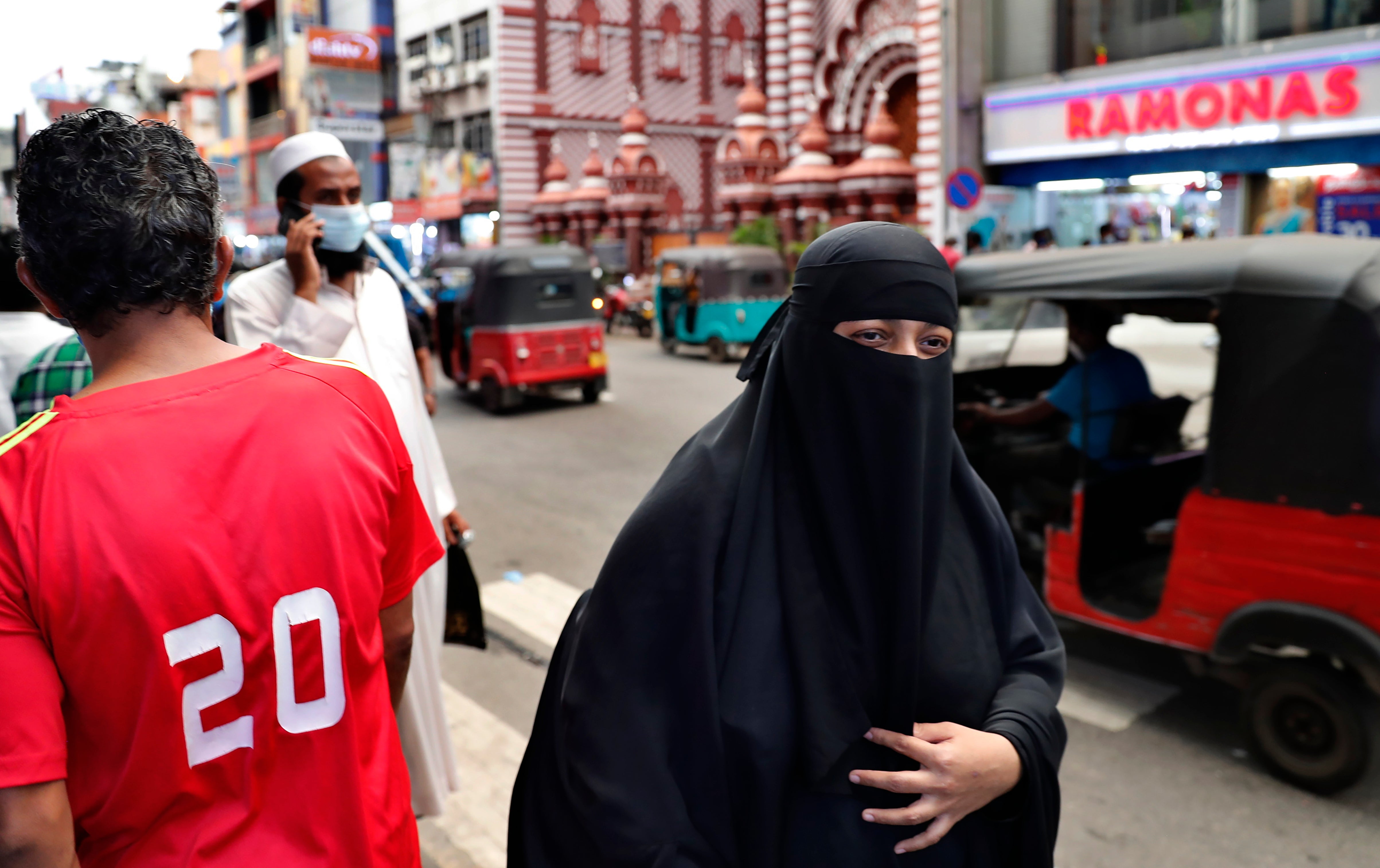Concerns rise over Sri Lanka's move to ban burqas
A Pakistani diplomat and a U.N. expert have expressed concerns over Sri Lanka’s proposed move to ban the wearing of burqaw

Your support helps us to tell the story
From reproductive rights to climate change to Big Tech, The Independent is on the ground when the story is developing. Whether it's investigating the financials of Elon Musk's pro-Trump PAC or producing our latest documentary, 'The A Word', which shines a light on the American women fighting for reproductive rights, we know how important it is to parse out the facts from the messaging.
At such a critical moment in US history, we need reporters on the ground. Your donation allows us to keep sending journalists to speak to both sides of the story.
The Independent is trusted by Americans across the entire political spectrum. And unlike many other quality news outlets, we choose not to lock Americans out of our reporting and analysis with paywalls. We believe quality journalism should be available to everyone, paid for by those who can afford it.
Your support makes all the difference.A Pakistani diplomat and a U.N. expert have expressed concerns over Sri Lanka’s proposed move to ban the wearing of burqas.
Sri Lanka announced plans over the weekend to ban the wearing of burqas — garments worn by some Muslim women that cover the body and face — and also said it would close more than 1,000 Islamic schools known as madrassas, citing national security.
Pakistan's ambassador to Sri Lanka, Saad Khattak, tweeted on Monday that the ban would "only serve as injury to the feelings of ordinary Sri Lankan Muslims and Muslims across the globe.”
The United Nations' special rapporteur on freedom of religion or belief, Ahmed Shaheed, tweeted that the “burqa bans are incompatible with int’l law guarantees of the right to manifest one’s religion or belief & of freedom of expression.”
On Saturday, Sri Lanka’s minister of public security, Sarath Weerasekara, called the burqa a sign of religious extremism and said it has a direct impact on national security. Weerasekara signed a paper on Friday seeking the approval of the Cabinet of Ministers to ban burqas.
The wearing of burqas in Sri Lanka was temporarily banned in 2019 soon after the Easter Sunday bomb attacks on churches and hotels that killed more than 260 people in the Indian Ocean island nation. Two local Muslim groups that had pledged allegiance to the Islamic State group have been blamed for the attacks at six locations — two Roman Catholic churches, one Protestant church and three top hotels.
Sri Lanka also plans to ban more than 1,000 Madrassas, saying they are not registered with the authorities and do not follow the national education policy.
The decision to ban burqas and madrassas is the latest move affecting Sri Lanka's minority Muslims.
Muslims make up about 9% of the 22 million people in Sri Lanka, where Buddhists account for more than 70% of the population. Ethnic minority Tamils, who are mainly Hindus comprise about 15% of the population.